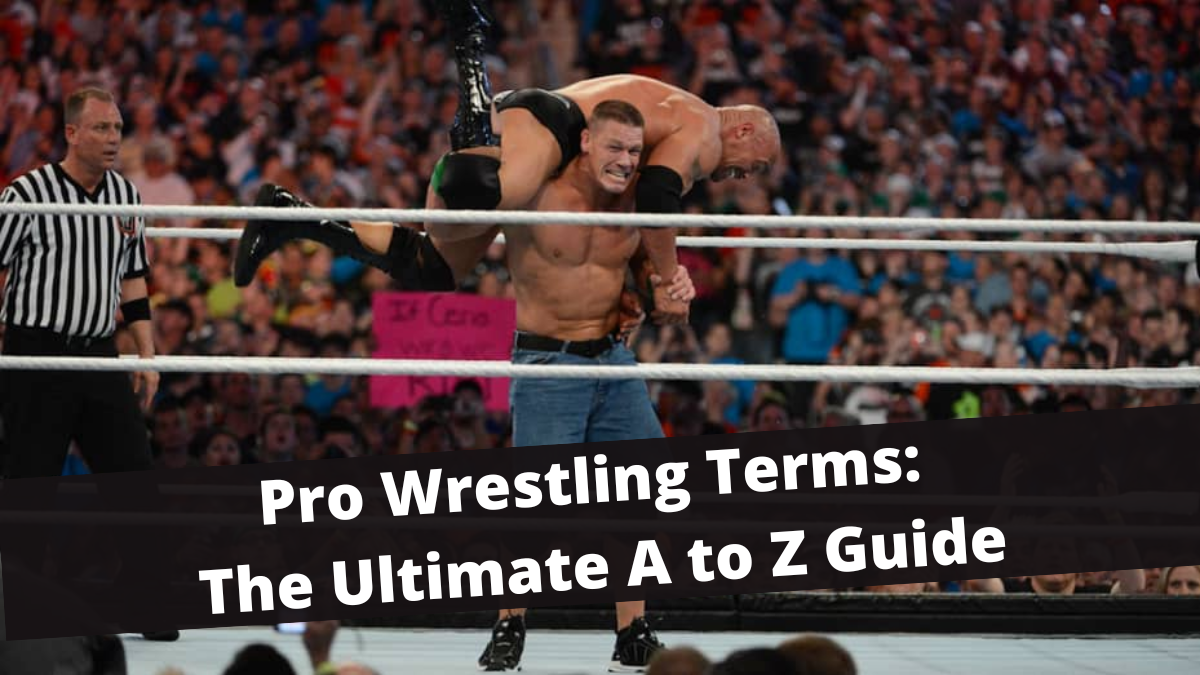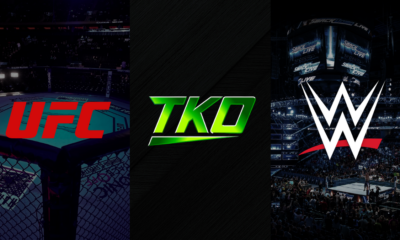
Professional wrestling is more than just a sport; it’s a complex and theatrical entertainment medium. Its blend of athletic competition and dramatic storytelling has captured the imagination of millions around the world. Along with the unique combination of physical prowess and narrative artistry comes a language all its own. This guide is designed to unravel the complexity of wrestling terminology for both ardent fans and those new to the spectacle. Whether you’re trying to understand the in-ring maneuvers or get behind-the-scenes insight, this guide has you covered.
Table of Contents
- Basics of Wrestling Terms
- In-Ring Maneuvers
- Behind-the-Scenes Jargon
- Character and Storytelling Terms
- Historical and Obscure Terms
- Glossary of Commonly Used Terms
Basics of Wrestling Terms
Understanding wrestling requires familiarity with its fundamental terminology. Here’s what you need to know:
- Babyface: A heroic or good guy character in wrestling.
- Heel: The antagonist or ‘bad guy’ in a wrestling storyline.
- Kayfabe: The portrayal of staged events as real or true.
- Turn: When a wrestler changes alignment from heel to face or vice versa.
- Gimmick: A character’s persona, appearance, or style.
- Match Types: Varieties of matches such as Singles, Tag Team, Royal Rumble, etc.
In-Ring Maneuvers
In the wrestling ring, physical mastery and acrobatics form a vivid spectacle. Some key moves include:
- Bodyslam: Lifting and slamming the opponent to the mat.
- Clothesline: Striking the opponent’s neck with an outstretched arm.
- Suplex: Lifting the opponent off the ground and then using a leg trip to slam them back down.
- Piledriver: Driving the opponent’s head into the mat while holding them upside down.
- Chokeslam: Grabbing the opponent’s throat and lifting them up before slamming them down.
- Finisher: A wrestler’s signature move, often leading to victory.
Behind-the-Scenes Jargon
Here are some terms used by industry insiders to describe the business of wrestling:
- Booking: The planning and arrangement of matches and storylines.
- Shoot: An unscripted, real-life occurrence in a wrestling context.
- Work: A staged or planned part of a wrestling event.
- Promo: A scripted speech or interview used to build a storyline.
- Over: A term describing a wrestler’s popularity.
Character and Storytelling Terms
Wrestling is rich in narrative techniques, character development, and dramatic storytelling:
- Feud: A storyline rivalry between wrestlers.
- Push: Efforts by the promotion to make a wrestler more prominent or successful.
- Tweener: A character who is neither a pure babyface nor heel.
- Swerve: An unexpected twist in a storyline.
- Heat: Negative reaction from the audience, typically aimed at a heel character.
Historical and Obscure Terms
Some unique and historical terminology that has shaped wrestling culture includes:
- Blading: The act of intentionally cutting oneself to provoke bleeding.
- Hardway: Accidental bleeding during a match.
- Jabroni: A term used for a performer who loses frequently.
- Workrate: The effort and performance level of a wrestler.
- Mark: A fan who believes the staged events of professional wrestling are real.
Glossary of Commonly Used Terms
For user convenience, a quick A-Z glossary of terms:
- Angle: A storyline or feud.
- Bump: A fall to the mat.
- Cage Match: A match fought within a cage.
- DQ (Disqualification): Breaking the rules leading to loss.
- Entrance Theme: The music played as a wrestler enters the arena.
- Face: See “Babyface.”
- Gimmick Match: A match with special rules or stipulations.
- Heat: Negative reaction from the audience.
- Iron Man Match: A match with a set time limit, where the goal is to score the most falls.
- Jobber: A wrestler who often loses to make others look strong.
- Kayfabe: Maintaining the illusion that wrestling events are real.
- Ladder Match: A match where an object (usually a title belt) is suspended above the ring, and ladders are used to reach it.
- Manager: A non-wrestling character who speaks for or assists a wrestler.
- No-Sell: Failing to react or sell an opponent’s offensive move.
- Over-Sell: Reacting too dramatically to an opponent’s offensive move.
- Pinfall: Winning a match by holding an opponent’s shoulders to the mat for a count of three.
- Promo: A speech or interview used to build up a character or storyline.
- Quitting Match: A match where the goal is to force the opponent to say “I Quit.”
- Reversal: Countering or reversing an opponent’s move.
- Spot: A specific move or sequence planned during a match.
- Tag Team: A match involving teams of two or more wrestlers.
- Turnbuckle: The padded corners of a wrestling ring.
- Undercard: The matches on a wrestling show that occur before the main event.
- Valet: A female companion to a wrestler, often used for eye appeal.
- Work: A staged or planned part of a wrestling event.
- X-Division: A weight-class in some wrestling promotions, focusing on high-flying and fast-paced action.
- Yarder: A term for a wrestler who performs mainly in backyard wrestling.
- Zebra: Slang for a referee, due to the black and white striped shirt.
Professional wrestling is a world filled with passion, athleticism, drama, and a language uniquely its own. This guide has shed light on over 50 terms that define the sport and entertainment of wrestling. Whether you’re a long-time fan or just stepping into the ring of wrestling fandom, these terms offer a window into the fascinating world that captivates audiences worldwide. Explore further, enjoy the spectacle, and speak the language of the ring!

















Pingback: Taking a Step Back to Basics – El Desperado Fansite
Pingback: Is Pro Wrestling A Sport? - Lost In Boston Sports